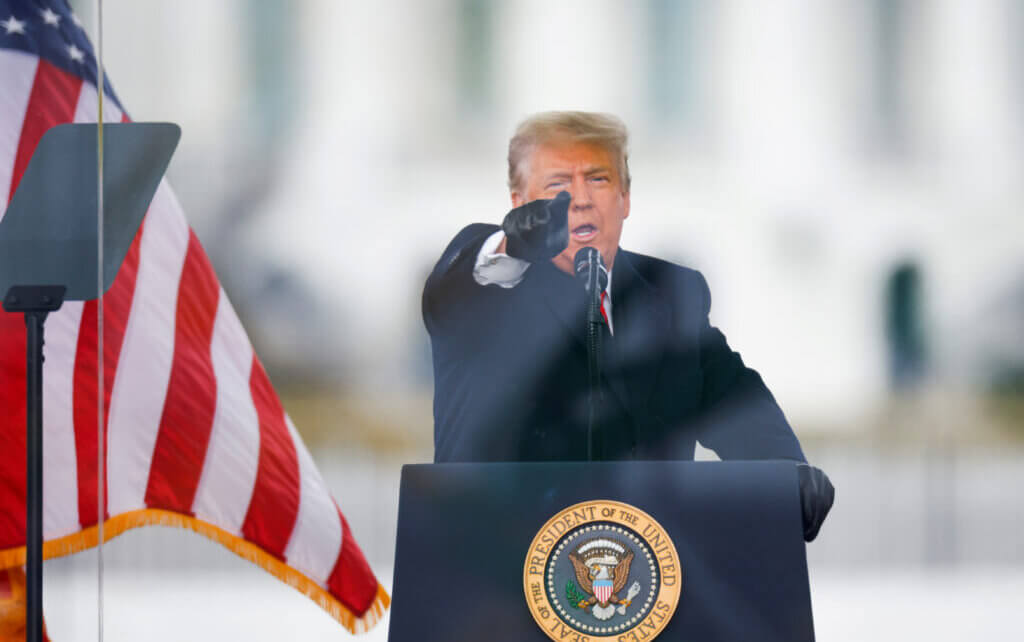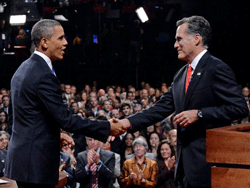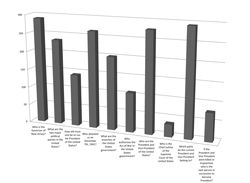On Jan. 6, 2021, the United States capitol was attacked in an attempt to overturn the 2020 election and disrupt the certification of the election by the US Congress. Following these events, the U.S House of Representatives selected a committee led by Chairman Bennie Thompson (D-MS) and Vice Chair Liz Cheney (R-WY) to investigate the violence of Jan. 6 and its causes.
Evidence presented by the committee thus far supports the case that former President Trump potentially violated the law when he refused to take action to stop his supporters from attacking the US Capitol, even when he became aware of the events that were unfolding. During a hearing, Vice Chair Liz Cheney stated, “Trump gave no order to deploy the National Guard that day and made no effort to work with the Department of Justice to coordinate and deploy law enforcement assets.”
Further evidence presented by the Committee revealed Rusty Bowers, Speaker of the Arizona State House, refused to bow to pressure from Trump and Rudy Giuliani to overturn the state’s election results. Bowers testified that Giuliani told him, “We have lots of theories, we just don’t have the evidence.”
Former Trump advisor Cassidy Hutchinson testified to the committee that Trump was aware his supporters were armed and stated, “You know, I don’t effing care that they have weapons” and, “They’re not here to hurt me. Take the effing [magnetometers] away. Let my people in.”
The events that took place on Jan. 6, 2021 were as follows: at noon, President Trump gave a speech to a large crowd of supporters near the White House. Shortly after the speech began, a large crowd marched from downtown D.C. toward the Capitol. Individuals in this group wore MAGA gear and patriotic attire and held American flags as well as flags that read “Trump 2020.” Some were even armed with guns, bulletproof vests, and other weapons. The rioters proceeded to break down barriers, storm the Capitol, and clash with police. As this unfolded, members of Congress were forced off the floor and into hiding. The breaching of the Capitol led to the deaths of five individuals.
On Aug. 8, a search of Trump’s home in Palm Beach, Florida yielded 11,000 documents, including over 100 marked as “confidential,” “secret,” or “top secret.” This marked the first time in history that a former United States President’s home had been raided by the FBI.
According to the Washington Post, there are four sets of top-secret documents, three secret documents, and three confidential documents. The Washington Post reported, “Some of the seized documents detail top-secret U.S. operations so closely guarded that many senior national security officials are kept in the dark about them,” as they “require special clearances on a need-to-know basis, not just top-secret clearance.”
Moreover, the Washington Post reported that one of the documents described a foreign government’s military defenses, including its nuclear-defense readiness. Trump has taken to his social media platform, Truth Social, and other outlets to claim the “nuclear-weapons issue is a hoax.”
Following the seizure of these documents, Trump requested to appoint a special master to review the records. U.S. District Judge Aileen Cannon granted this request, while also blocking the government from using any of the documents as part of a criminal investigation. Following the granting of Trump’s request, the United States Justice Department petitioned the U.S. Court of Appeals for the 11th Circuit, requesting that the court put Cannon’s orders on hold.
On Sept. 21, the court of appeals granted the government’s request. The 11th Circuit ruled that the Justice Department did not have to turn over the documents with classified markings to the special master and that the department could continue using the documents in its investigation.
Trump is now petitioning the United States Supreme court to reinstate the portion of Cannon’s order that required the government to turn over the documents marked as classified.
Raina Morse, a sociology student with a minor in gender studies and intersectionality, said that she’s “unsurprised at Trump asking the Supreme Court to intervene…I worry for the future, and for some semblance of democracy being maintained in the US if he gets his way, but I think giving Trump attention is what got us into this whole mess, and we’d do well to not take his bad-faith behavior seriously.”
Catherine Melman-Kenny, a senior political science and anthropology student, feels that “Trump’s request is an attempt to avoid the consequences he would legally be required to face for committing a crime of such a high degree. Anybody else who was found to have taken 100 classified documents to their private home without authorization would be facing very high criminal charges. They [the FBI] had a valid warrant, searched what they were authorized to, and are merely trying to investigate and address a crime of national security.”
According to a poll conducted by YouGov, 54 percent of Americans supported the actions of the FBI, while 36 percent were opposed to it.
During his time in office, Trump was able to successfully appoint three justices to the United States Supreme Court — Neil Gorsuch, Brett Kavanaugh, and Amy Coney Barrett. These appointments tipped the Court into a Conservative majority.
Trump’s request asks that the classified records in question are returned to the pool of documents included under the special master review, opting not to ask the court to exclude those documents from being used by the Justice Department as they continue their investigation. On Oct. 4 this request was received by Justice Clarence Thomas, who handles emergency appeals from the 11th Circuit.
However, Trump’s emergency appeal to the Supreme Court wasn’t treated like an urgent matter as Justice Clarence Thomas gave the Department of Justice a week to respond. A response from the DOJ is due on Oct. 11.




